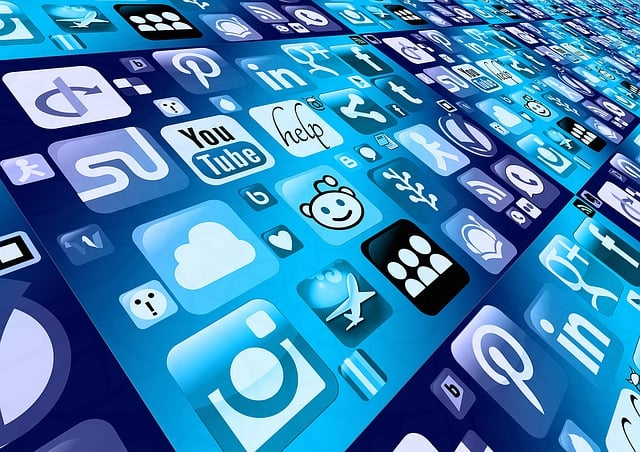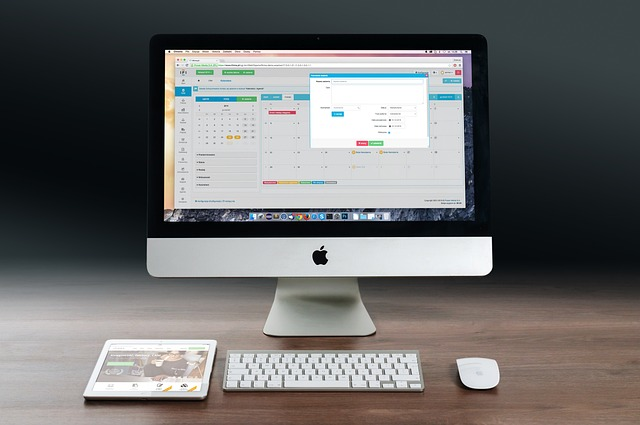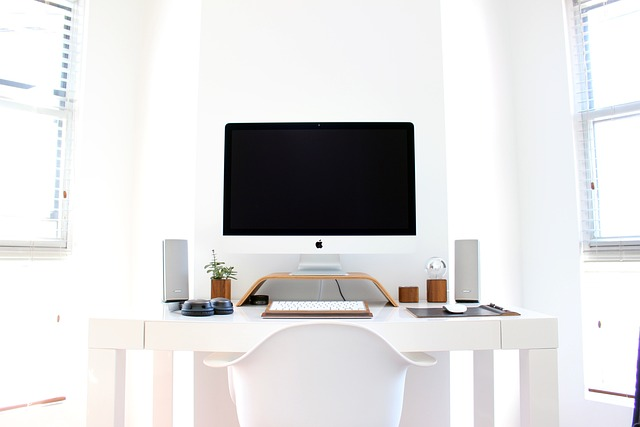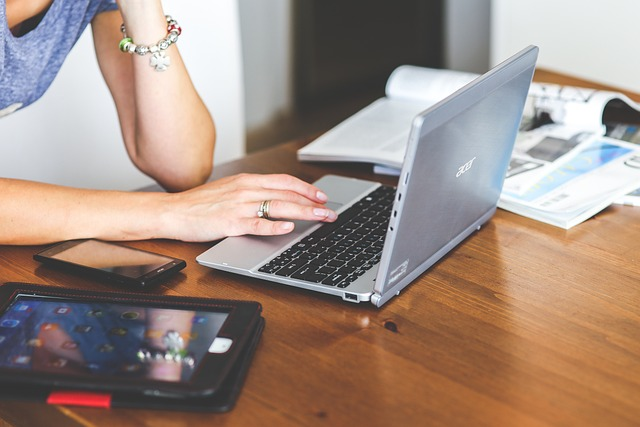Have you ever paused to consider how your constant scrolling on social media affects your physical health? In a world where social media platforms dominate our daily routines, it’s crucial to understand the potential impact they have on our bodies. How Can Social Media Affect Your Physical Health?
As we delve into the intricate relationship between social media and physical health, we will explore both the beneficial and detrimental effects of this ubiquitous aspect of modern life.
The Impact of Social Media on Our Mental Health
The digital age has fundamentally transformed how we interact with one another, with social media platforms at the forefront of this evolution. From the early days of MySpace and Friendster to the current dominance of Facebook, Instagram, and TikTok, social media has become an integral part of our daily lives.

Initially, social networking was primarily a means to stay connected with friends and family, share experiences, and forge new relationships. However, as these platforms evolved, their usage expanded beyond simple communication.
Social media sites began to play a significant role in shaping public opinion, marketing, and even influencing political outcomes.
In the mid-2000s, the rise of smartphones and mobile internet access further accelerated the adoption of social media.
Platforms like Twitter and Instagram leveraged this technological advancement, making it easier than ever to stay connected on the go. This surge in social media engagement has had profound implications on both mental and physical health.
Previous research has highlighted the mental health concerns associated with excessive social media use, such as anxiety, depression, and low self-esteem.
However, it wasn’t until recent years that the spotlight began to focus on the physical health outcomes linked to social media habits.

Researchers have conducted numerous systematic reviews and longitudinal studies to explore how screen time, poor posture, and sedentary lifestyles contribute to various health issues.
In a 2020 study by the Pew Research Center, it was found that young adults and college students are particularly susceptible to the negative effects of excessive social media use.
The digital world, while offering unprecedented connectivity and access to information, also poses risks that were previously unimaginable.
As the boundaries between our online and offline lives continue to blur, understanding these risks becomes increasingly important.
Using Social Media
Pros:
- Social Support: Social media platforms provide a space for users to connect with friends and family, offering emotional support and fostering relationships.
- Awareness and Education: Users have access to a wealth of information on health and wellness, enabling better health decisions.
- Community Building: These platforms allow individuals with similar interests or health conditions to form supportive communities.
- Health Campaigns: Public health organizations can leverage social media to disseminate important health messages quickly and widely.
- Encouragement of Physical Activity: Fitness influencers and online challenges can motivate users to adopt healthier lifestyles and engage in physical activities.
Cons:
- Sedentary Lifestyles: Excessive social media use often leads to prolonged periods of inactivity, contributing to physical health issues such as weight gain and muscle tension.
- Sleep Disturbances: Blue light emitted from screens can interfere with sleep patterns, leading to poor sleep quality and related health problems.
- Poor Posture: Spending long hours on mobile phones and computers can result in poor posture and related physical discomfort.
- Eye Strain: Constant exposure to screens can cause eye strain, which can lead to headaches and impaired vision.
- Negative Impact on Self-Esteem: Comparing oneself to idealized images on social media can negatively affect self-esteem and mental well-being, indirectly impacting physical health.
By examining both the advantages and disadvantages of social media usage, we can better understand how to navigate the digital world while minimizing its negative impact on our physical health. As we continue to explore this topic, it becomes clear that a balanced approach to social media use is essential for maintaining both mental and physical well-being.
Do You Struggle With Poor Physical Health Because of Social Media Platforms?

☐ Set Daily Screen Time Limits:
Monitor and reduce the time spent on social platforms using built-in digital wellbeing tools.
☐ Take Regular Breaks:
Schedule breaks every hour to stand, stretch, and walk to counteract the physical effects of prolonged sitting.
☐ Create a Pre-Bedtime Routine:
Establish a routine that avoids screen time at least one hour before you fall asleep to improve sleep quality.
☐ Engage in Physical Activities:
Dedicate at least 30 minutes daily to physical activities such as walking, yoga, or sports to enhance physical functioning.
☐ Implement Family Screen-Free Time:
Designate certain hours of the day as screen-free time to encourage more face-to-face interactions and improve child’s health.
☐ Curate Your Social Media Feed:
Follow accounts that promote positive psychological well being and unfollow those that trigger mental health issues.
☐ Use Apps for Physical Health Tracking:
Utilize health tracking apps to monitor physical activity and ensure you are meeting daily movement goals.
☐ Educate About Social Media Effects:
Parents should educate children on the potential negative effects of excessive social media use, enhancing awareness and healthy habits.
☐ Participate in Offline Hobbies:
Develop and engage in hobbies that do not involve screens, such as reading, gardening, or crafting, to improve subjective well being.
☐ Stay Informed with Reliable Research:
Keep up with the latest findings from sources like BMC Public Health and systematic reviews to understand the long-term physical and mental health impacts of social media.
How to Stay Sane on Social Media

Set Healthy Boundaries for Social Media Use
Establishing boundaries is crucial to maintaining mental health on social media platforms. Limit your daily time spent on social media sites by setting timers or using apps designed to monitor and restrict usage.
For example, allocate specific hours in the day for social media, and avoid using it during meals or before bed. By doing so, you can prevent excessive social media use and its potential negative effects on your mental health and self-esteem.
Curate Your Feed to Boost Self-Esteem
Carefully curate your social media feed to follow accounts that uplift and inspire you. Unfollow or mute accounts that cause negative emotions or self-comparisons. By filling your feed with positive, motivational content, you can improve your mental health and self-esteem.
For instance, follow accounts that promote body positivity, mental well-being, and personal growth, helping you to maintain a healthy relationship with social media.
Engage in Regular Digital Detoxes
Taking regular breaks from social media can significantly benefit your mental health. Plan digital detoxes where you completely disconnect from social media platforms for a specified period, such as a weekend or even three weeks.
During this time, engage in activities that do not involve screens, like reading, exercising, or spending time in nature. This practice can help you reset and reduce the negative effects of excessive social media use on your mental well-being.

Practice Mindful Social Media Use
Mindfulness can transform your relationship with social media. Be conscious of your emotions and reactions while using social media sites.
If you notice feelings of envy, sadness, or frustration, take a step back and assess why. Mindful social media use helps you stay aware of how content affects your mental health and enables you to make more intentional choices about what and who you engage with online.
Prioritize In-Person Relationships
Fostering in-person relationships can mitigate the negative impact of social media on your mental health. While social media helps stay connected, it cannot replace the depth and quality of face-to-face interactions.
Schedule regular meetups with friends and family to ensure that your real-life connections remain strong. This practice provides emotional support and can help balance the time spent on social media platforms.
Limit Social Media Before Bed
Using social media before bed can interfere with your ability to fall asleep, affecting both your physical and mental health. The blue light emitted by screens can disrupt your sleep cycle, leading to poor sleep quality and increased stress.
Set a rule to stop using social media at least an hour before bedtime. Instead, develop a relaxing pre-sleep routine that includes reading a book or meditating to improve sleep quality and overall well-being.
Educate Yourself and Your Family
Understanding the effects of social media use is essential for maintaining mental health. Parents should educate themselves and their children about the potential risks and benefits of social media.
Discuss the importance of responsible use, the impact on self-esteem, and strategies to avoid excessive social media use. Providing this knowledge helps build a healthy foundation for social media habits and encourages open communication about online experiences.

Use Social Media for Positive Connections
Leverage social media platforms to foster positive connections and communities. Join groups that share your interests, participate in constructive discussions, and support others.
For example, engaging in mental health support groups or hobby-focused communities can provide a sense of belonging and reduce feelings of isolation. Using social media for these positive purposes can enhance your mental health and make your online experience more fulfilling.
Monitor and Reflect on Your Social Media Habits
Regularly reflect on your social media habits to ensure they align with your mental health goals. Keep a journal to track your time spent on social media, your feelings before and after usage, and any patterns that emerge.
This practice can help identify triggers of negative emotions and areas for improvement. For instance, if you notice increased anxiety after browsing certain accounts, it may be time to reassess and modify your feed accordingly.
Seek Professional Help if Needed
If you find that social media use is significantly impacting your mental health, do not hesitate to seek professional help. Mental health conditions such as anxiety and depression can be exacerbated by social media.
Therapists and counselors can provide strategies to manage social media use and address underlying issues. Additionally, systematic reviews and research highlight the benefits of professional support in mitigating the adverse effects of social media, ensuring you maintain a healthy and balanced life.
Be Aware of Social Media’s Impact on Mental Health Conditions
People tend to overlook the impact social media can have on existing mental health conditions. Systematic reviews have shown that excessive social media use can exacerbate symptoms of anxiety and depression. Be aware of how your social media habits affect your mental health, and seek help if you notice worsening symptoms. Consulting a mental health professional can provide strategies to manage your social media use effectively, ensuring it doesn’t have a negative effect on your well-being and mental health condition.

Utilize Secondary Analysis for Informed Decisions
Stay informed by reviewing secondary analysis and research studies on the effects of social media. Understanding the scientific findings and expert opinions on social media’s impact can guide you in making healthier choices.
For example, if studies highlight the negative effects of prolonged screen time, consider adjusting your habits accordingly. Being informed empowers you to use social media more mindfully, reducing the risk of adverse outcomes on your mental and physical health.
Implement Positive Psychology Practices
Incorporate positive psychology practices into your social media use to enhance your mental health. Focus on sharing and engaging with content that promotes gratitude, kindness, and positivity.
For instance, participating in online challenges that encourage acts of kindness or sharing what you are grateful for can foster a positive online environment. These practices can counteract the negative effects of social media, helping you build a more uplifting and supportive digital experience.
Lead by Example in Your Social Media Habits
Set a good example for others, especially younger users and children, by demonstrating healthy social media habits. Show that it is possible to use social media responsibly and mindfully.
For example, openly discuss your boundaries and practices, such as limiting screen time and taking regular digital detoxes. By leading by example, you can influence others to adopt healthier habits, contributing to a more balanced and positive online community.
Future Implications
As we move further into the digital age, the effects of social media on physical health will continue to be a critical area of study and concern.

With the pervasive presence of social media platforms in daily life, particularly among young people, several future trends and challenges are likely to emerge.
- Increasing Mental Health Conditions: Given the current opinion and ongoing research, we can expect an increased risk of mental health conditions linked to social media usage. Adolescents and young adults, who are among the heaviest users, may face heightened susceptibility to anxiety, depression, and other mental health issues. This risk is exacerbated by the constant exposure to idealized images and lifestyles, which can negatively affect self-esteem and psychological well-being.
- Adolescent Health at Risk: The physical health of adolescents is also at stake. Sedentary lifestyles, resulting from prolonged screen time, may contribute to long-term health issues such as obesity, poor posture, and musculoskeletal problems. As young people continue to engage with social media, there will be an increased need for interventions that encourage physical activity and healthy habits from an early age.
- Systematic Reviews and Longitudinal Data: Future research, including systematic reviews and the collection of longitudinal data, will be crucial in understanding the long-term effects of social media on health. These studies will help delineate the causal relationships and offer insights into how social media habits evolve over time and impact both physical and mental health.
- Technological Advances and New Platforms: As technology advances, new social media platforms will emerge, potentially introducing new variables into the equation. These platforms may integrate augmented reality (AR) and virtual reality (VR), further blurring the lines between online and offline experiences. While these technologies offer innovative ways to connect, they may also present new challenges in terms of addiction, screen time, and physical inactivity.
- Divergence Between Two Groups: There may be a growing divergence between two groups: those who manage to balance social media use with healthy lifestyle choices and those who fall prey to its negative effects. Good examples of balanced use will need to be highlighted to encourage healthier behaviors. However, addressing the needs of those negatively affected will require comprehensive strategies involving educators, parents, healthcare providers, and policymakers.
- Potential Interventions and Policies: To mitigate possible negative effects, future policies may need to focus on regulating social media use, particularly among children and adolescents. Educational programs that teach digital literacy and promote healthy screen habits will become increasingly important. Additionally, platforms themselves may need to implement features that encourage breaks, physical activity, and mental well-being.
- Psychological Support and Resources: With the link between social media use and mental health conditions becoming more apparent, there will be a growing demand for psychological support and resources. Integrating mental health services with social media platforms could provide users with immediate access to support, potentially reducing the negative impact on mental health.
Practical Tips for Parents to Manage Children’s Social Media Use
As social media platforms become more integrated into daily life, it’s essential for parents to guide their children’s social media use to safeguard their mental and physical health.

Here are some practical tips:
1. Set Clear Rules:
- Establish time limits for daily social media use.
- Create “no phone” zones in the house, like during meals or in bedrooms.
2. Encourage Open Communication:
- Discuss the pros and cons of social media with your children.
- Encourage them to talk about their online experiences and any negative effects they might feel.
3. Monitor Social Media Habits:
- Use parental control apps to track and limit usage.
- Regularly review the social media sites your children visit.
4. Promote Offline Activities:
- Encourage hobbies and sports that do not involve screens.
- Plan family activities that promote physical health and togetherness.
5. Educate About Online Safety:
- Teach your children about privacy settings and the importance of not sharing personal information.
- Explain the risks of online interactions and how to handle cyberbullying.
6. Be a Role Model:
- Demonstrate healthy social media habits by balancing your own screen time.
- Show them the importance of face-to-face interactions and physical activities.
By implementing these tips, parents can help their children develop a balanced relationship with social media, ensuring it supports rather than hinders their mental well-being and physical health.
Key Takeaways on How Can Social Media Affect Your Physical Health
- Excessive social media use can negatively impact both mental and physical health.
- Setting boundaries on social media use helps maintain mental well-being.
- Curating a positive social media feed can boost self-esteem.
- Regular digital detoxes can reduce the negative effects of social media.
- Mindful social media use can prevent negative emotional reactions.
- Face-to-face interactions are crucial for maintaining strong relationships.
- Limiting social media before bed can improve sleep quality.
- Educating families about social media risks promotes healthier usage.
- Positive connections on social media can enhance mental health.
- Seeking professional help can mitigate the adverse effects of social media.
Conclusion on How Can Social Media Affect Your Physical Health
So, How Can Social Media Affect Your Physical Health? Understanding the impact of social media on both mental and physical health is crucial in today’s digital age. By implementing the strategies discussed, you can maintain a healthier balance and improve your overall well-being. Now it’s your turn to take action, do systematic review, and make positive changes to your social media habits. Good luck!
FAQ on How Can Social Media Affect Your Physical Health
How does social media affect physical health?
Social media can contribute to sedentary lifestyles, leading to weight gain, poor posture, and sleep disturbances, which negatively affect physical health.
How does social media positively affect physical activity?
Following fitness influencers and participating in online challenges can motivate users to engage in regular physical activities and adopt healthier lifestyles.
What impact do news and media play on our emotional and physical well-being?
News and media can influence emotional and physical well-being by shaping perceptions and triggering stress or anxiety, impacting overall health.
Why does mental health affect physical health?
Mental health issues like stress and depression can lead to physical health problems such as weakened immune systems, increased pain sensitivity, and chronic illnesses.
